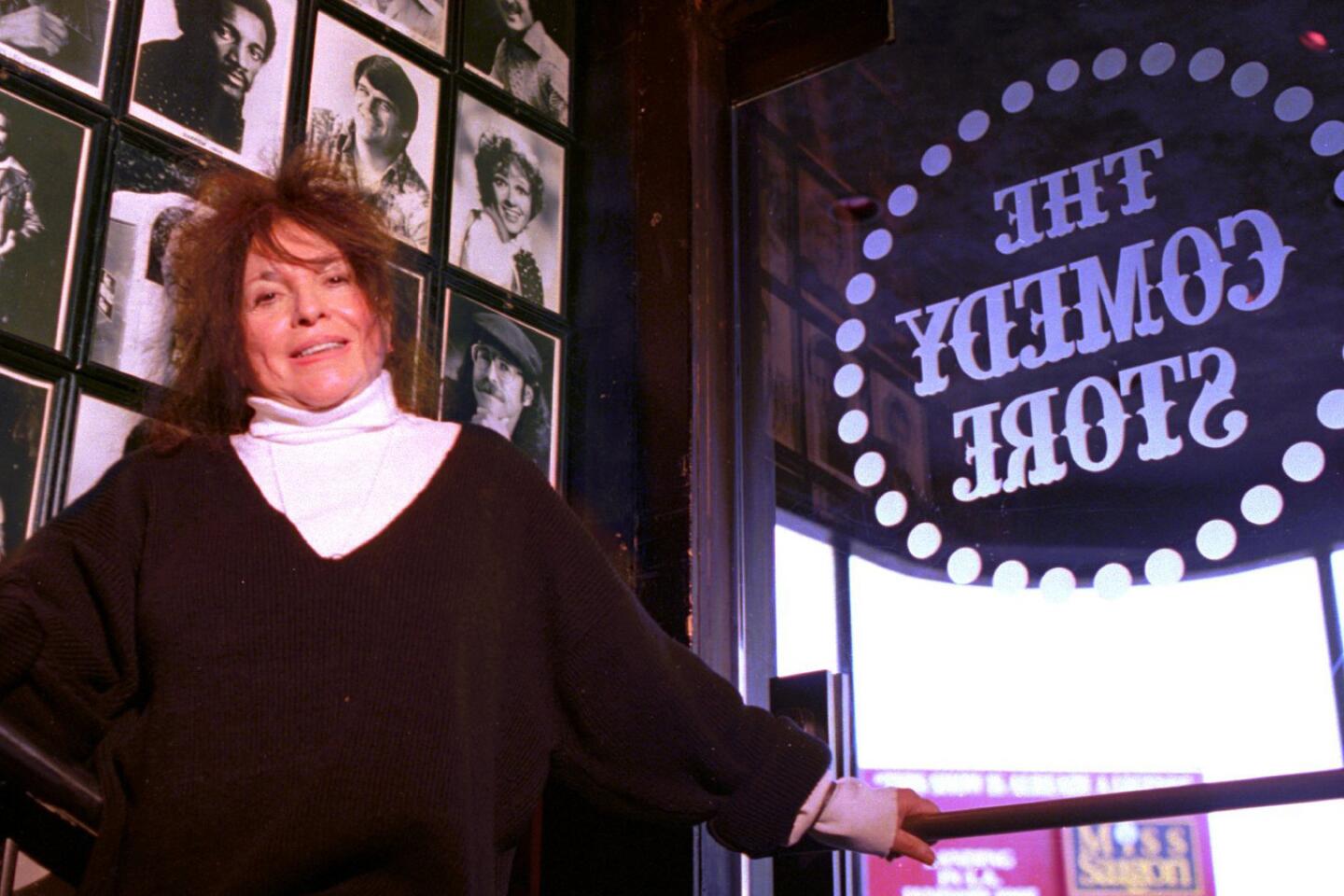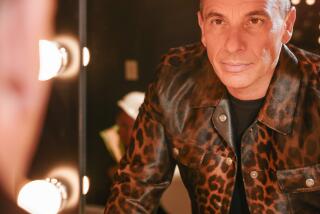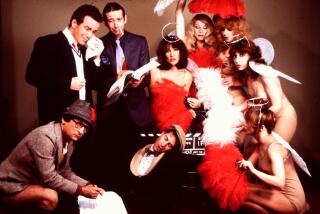Mitzi Shore’s Comedy Store legacy was inked long ago, as told to The Times
Comedy Store matriarch Mitzi Shore’s indelible mark on the Hollywood stand-up circuit was cemented long ago. Numerous comics and stand-up titans credited the impresario, who died Wednesday at age 87, for their early breaks and spoke warmly of the “den mother” in the pages of this newspaper over the years.
Shore set the tone for the no-holds-barred approach that the storied venue fostered in its proteges, creating a home base for comics to try out new material.
“We’re like a school, or a boxers’ gym,” Shore told The Times in 1994. “We’re here to help people develop their skills, and to get them seen by supportive comedy crowds, as well as by TV and movie people.”
Though the store was co-founded by comedy writer Rudy De Luca and comic Sammy Shore, Mitzi Shore named the place and inherited the club during her 1970s divorce settlement with Sammy.
After that, she was a fixture at the club, working in the back booth, setting the lineup in her office and fostering new talent, such as Garry Shandling, David Letterman, Craig T. Nelson, Jim Carrey, Jeff Altman and Richard Pryor.
From The Times’ archives, here’s a sampling of what her “students” had to say over the years:
“She should get a lot of credit. If something happens on your watch, you get the credit for it… I liked the fact that she had a club, that she’s a woman, [and] you’re in an extremely harsh business.” — Jay Leno (“Echo of laughter,” 2003)
“You were either Mitzi’s son, nephew or lover. You’d call in on Monday or Tuesday for spots ... If you didn’t get a spot one week, or got [bad] ones, you wondered what you’d done to upset Mitzi.” — Bob Saget (2003)
“When she first met me — I’m not tooting my own horn — I was 21 years old and she said, ‘There’s never been a comic other than Lenny Bruce who’s a very handsome comic and you have that whole Travolta-Stallone look, and you’re going to be a huge movie star.’” — Andrew “Dice” Clay (“The Sunday Conversation,” 2011)
“Whether it’s Mitzi’s eye for comedy or just the wacky people who come here, I don’t know. But this place has endured. It’s a place you can come and try new stuff. It’s comfortable.” — Jeff Altman (“Send in the Clowns,” 1992)
“I used to go up onstage with no material. Mitzi would say, ‘I don’t understand what you’re doing, but go ahead.’ About a third of the stuff I came up with was great. The poor audience had to sit through the other two-thirds.” — Jim Carrey (1992)
If you didn’t get a spot one week, or got [bad] ones, you wondered what you’d done to upset Mitzi.
— Bob Saget, 2003
“A lot of people say a lot of things about Mitzi, but if you look at the unique people who’ve come up in comedy, like Sam Kinison, Bobcat Goldthwait, Sandra [Bernhard], even Andrew Dice Clay, they’ve come through the Store. It takes a while to find out what you’re doing. You fail so much. Maybe Mitzi feels she hasn’t affected things in a big way. But she affected us, and we went on to affect a lot of other people.” — Judy Carter (“A Room of Their Own,” 1993)
“[The Comedy Store’s] like a demonic home away from home for a lot of people. It’s starting to unfold like a Greek tragedy, and I think the real fear of everyone is that this institution will go away [when Shore dies] — and to lose it would be a tremendous loss.” — Marc Maron (“Comedy Store family dispute is no laughing matter,” 2009)
“I owe a lot of my career to her. The Comedy Store is a magical place. When I showcased for her, she said, ‘I’m going to make you a regular. Have you ever thought about wearing the outfit — the hat, the gown.’ It hits me — she wants me to wear a turban and a dishdasha! ... I said, ‘I’ll gladly wear the outfit but they may come after me, they may come after the Comedy Store.’ The booker called and said, ‘Forget the outfit, we’ll see you Tuesday.’” — Maz Jobrani (“Stand-up Maz Jobrani on the culture of comedy,” 2015)
“There were people who used to sleep here. It was the complete antithesis of the Four Seasons. Back then ... it kind of ran itself, it’s like the comedians ran the damn place. The inmates were running the asylum.” — Sebastian Maniscalco (“Sebastian Maniscalco recounts his road from the Four Seasons to the Comedy Store (and beyond,” 2016)
Follow me: @NardineSaad
More to Read
The biggest entertainment stories
Get our big stories about Hollywood, film, television, music, arts, culture and more right in your inbox as soon as they publish.
You may occasionally receive promotional content from the Los Angeles Times.












